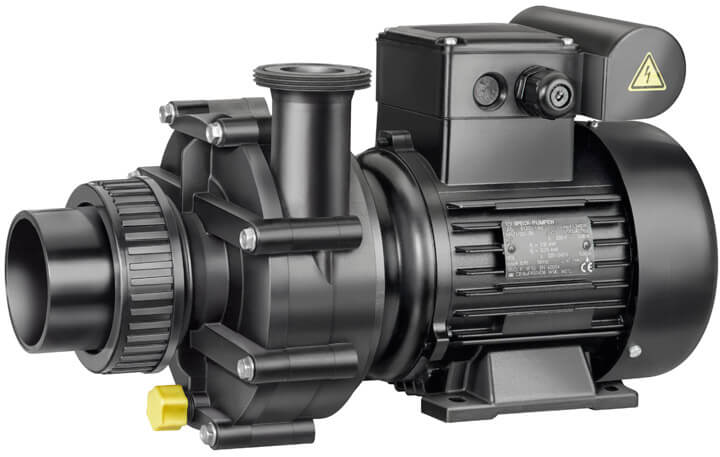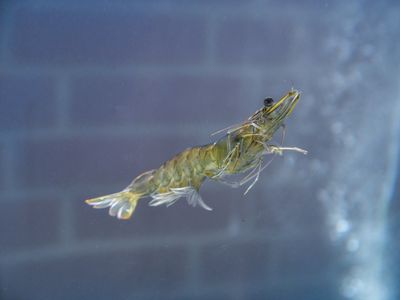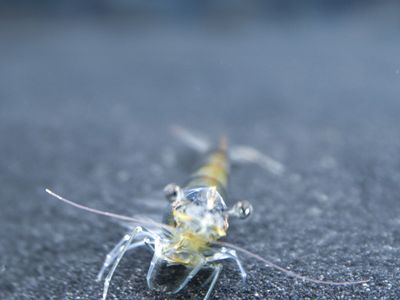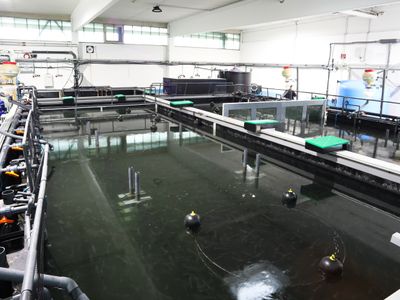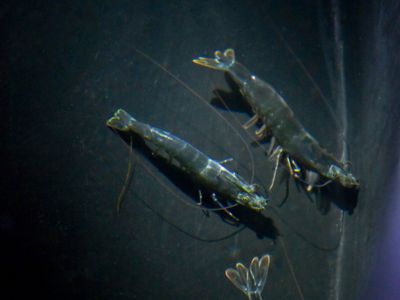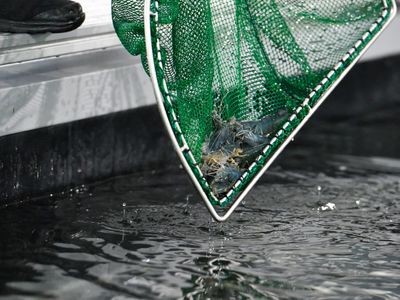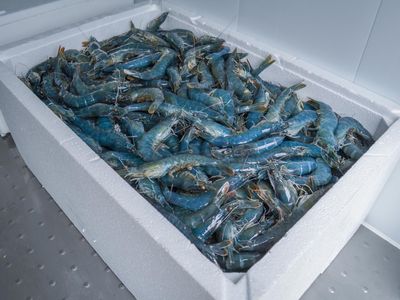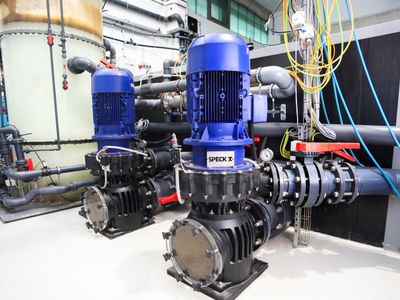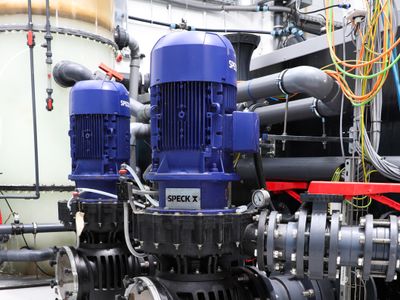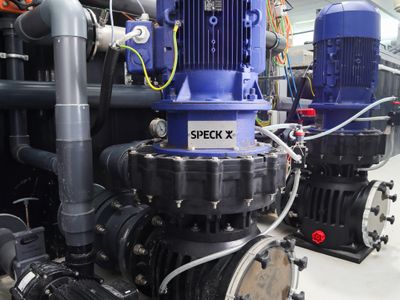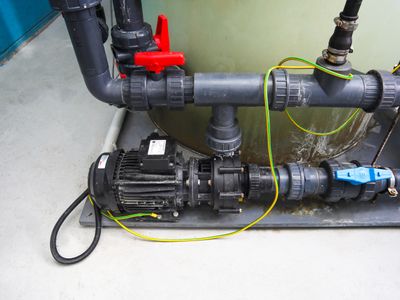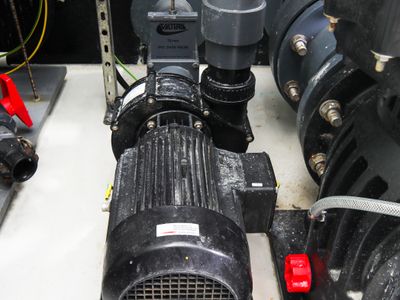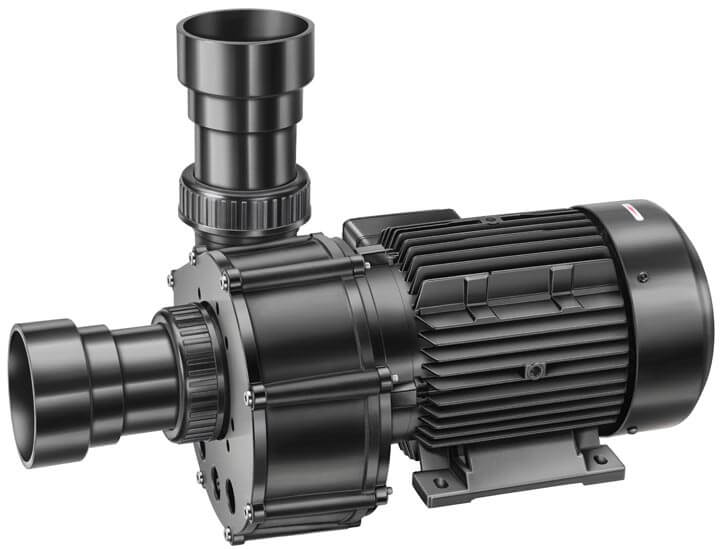

Enjoying prawns, being animal-friendly and doing something for our planet. How does it work?
This is the question the Aquapurna team is asking itself!

The initial situation
The consumption of fish and seafood is increasing all over the world and also in Germany. Prawns are particularly popular due to their taste, high protein and low carbohydrate content, combined with a high degree of satiety. Florian Gösling and David Gebhard, the founders of the start-up Aquapurna, believe that crustaceans are not only tasty but also highly interesting. During their backpacking trip through India, the two visited various shrimp farms. They quickly realized that farming would have to change dramatically in terms of animal welfare, product quality and environmental impact in order to fit in with modern times. The business idea was finally followed by the founding of Aquapurna in 2020. The start-up develops automated and digitalized aquaculture applications. The focus is on the sustainable breeding of tropical saltwater shrimp in resource-conserving recirculating aquaculture. The company's own shrimp larvae and genetic lines are bred in the in-house hatchery set up at the research and development centers in Wunstorf near Hanover. Instead of the usual import of animals from the USA, this process is unique in Germany.

Sustainability & animal welfare
The state of the world's oceans is dramatic: they are on the brink of collapse and commercial fishing plays a major role in this. Aquapurna offers a solution to this problem with land-based aquacultures that enable shrimp farming inland. The start-up's focus is clearly on sustainability and animal welfare always comes first. Thanks to regional production close to the end customer, there are no frozen transports halfway around the world. 100% from Germany and sustainably farmed, this means enjoyment without a guilty conscience. And without destroyed mangroves, damaged seabeds or terrible bycatch. Transparent and trustworthy production is guaranteed without the use of antibiotics. Aquapurna itself operates in accordance with the latest energy and ecological standards and is virtually climate-neutral. For example, industrial waste heat that would otherwise escape unused into the atmosphere is used by the start-up. This leads to considerable energy savings in the company's internal processes. In addition, 98% of the water used in Aquapurna's rearing circuits is recirculating water, which is treated using mechanical and biological filters. This type of water treatment is considered to be one of the most efficient and resource-conserving processes available and therefore creates optimum conditions for shrimp farming - without harming the environment.

Due to our employees' many years of good experience with SPECK products and service, it was clear to us from the outset that we would only use SPECK pumps.<<
The technology
The rearing of the shrimps takes a total of 4 months. Aquapurna does not touch the shrimp throughout their entire life cycle. The sophisticated technology is based on automated, slow and therefore completely stress-free processes for the shrimp. The right technology, which permanently ensures crystal-clear and pathogen-free rearing water, plays a very important role here: three BADU Delta-MK 16 units are used for the three saltwater aquaculture recirculation systems. The sealless, magnetically coupled pumps are characterized above all by low power consumption, high efficiency and extremely quiet running. For another, larger circulation system with a salt content of 2 % and a water temperature of 29° C, two BADU Block Multi Mar 100/250 are used as redundant main circulation pumps with a capacity of up to 200 m³/h. One BADU 21-81 and one BADU 21-41 are used as feed and injector pumps for a protein skimmer. The operating principle of the protein skimmer is to use the physical and chemical properties of microscopic air bubbles to bind and trap dissolved proteins. The circulating water is mixed with very fine air/ozone bubbles. The ozone kills harmful organisms and breaks down long-chain molecules without leaving any residue in the water. These molecules and very fine particles are bound to the air bubbles by molecular forces, compressed into a foam and separated via a collection vessel. With the BADU 21-81 and BADU 21-41, the flow through the reactor vessel and the Venturi injectors is ensured and a permanently high quality of the rearing water is guaranteed.

The end product "Gamba Zamba"
Aquapurna markets its sustainably produced crustaceans in Germany under the brand name "Gamba Zamba - the shrimp from next door" in food retailers, restaurants and fishmongers. Without the use of antibiotics, microplastics or environmental degradation, the prawns are not only of good quality. The sustainably controlled rearing is also noticeable in the taste: The German shrimp is firm to the bite, nutty and sweet and no comparison to its Asian counterparts. A prawn as it should be. For sustainable enjoyment without a guilty conscience and for all prawn lovers who want to know what ends up on their plate.

Aquapurna
Founded in 2020 in the town of Wunstorf in Lower Saxony, the start-up Aquapurna develops automated and digitalized aquaculture applications. The focus is on the sustainable breeding of tropical saltwater shrimp in resource-conserving recirculating aquaculture. The company operates several research and development centers on an area of around 1000 m² with an international team of experts from different areas of aquaculture. Aquapurna's aim is to develop cost-efficient technology for use in land-based aquaculture.


